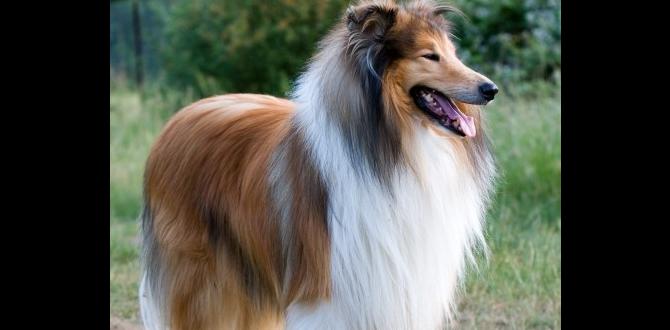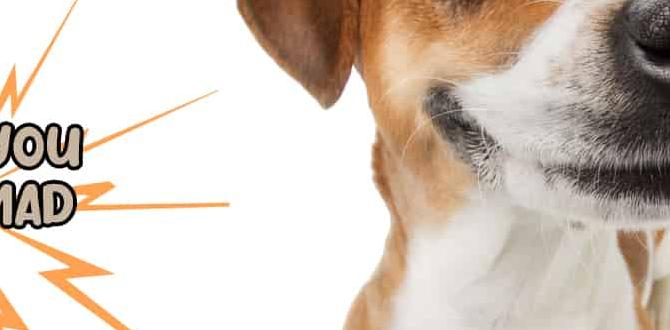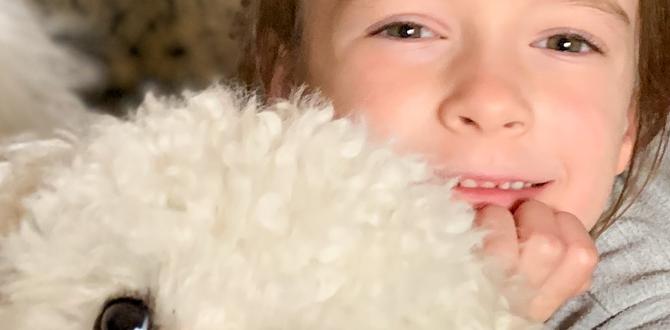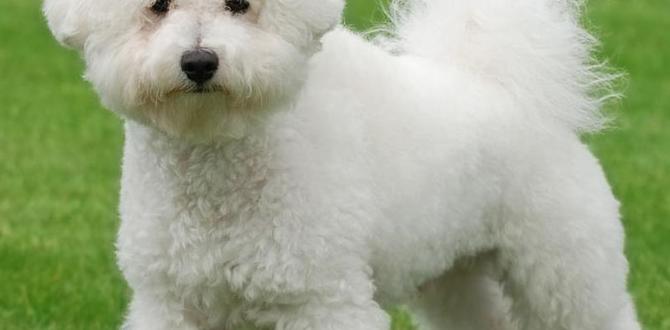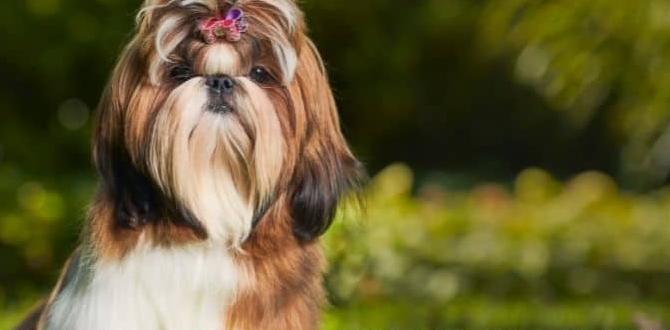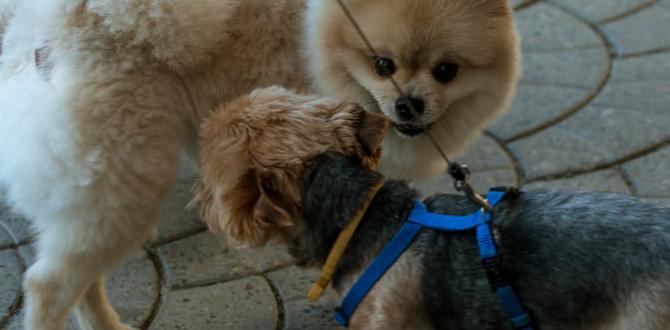As pet owners, we are responsible for ensuring that our furry companions receive proper dental care. Regular teeth cleaning is essential to maintain good oral health and prevent the development of serious dental problems.
However, after a dental procedure, some dogs may exhibit unusual behaviours that worry their owners. It is not uncommon for dogs to act strange after teeth cleaning, and understanding their behaviour can help ease concerns and ensure their well-being.
Here, we will explore some reasons dog acting strange after teeth cleaning. We will discuss the possible side effects of anaesthesia, pain, discomfort, and changes in diet. We will also provide tips on how to help your dog recover from the procedure and how to monitor their behaviour to ensure they are healing properly.
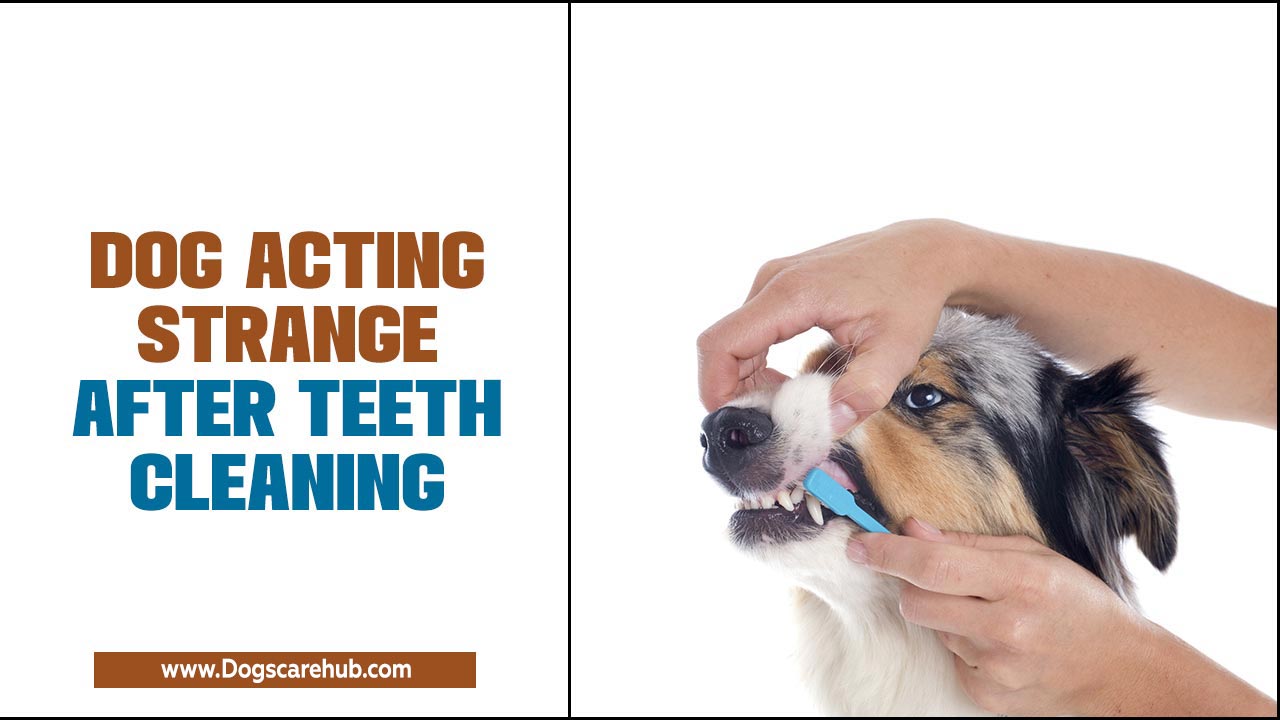
Reasons Behind Dog Acting Strange After Teeth Cleaning
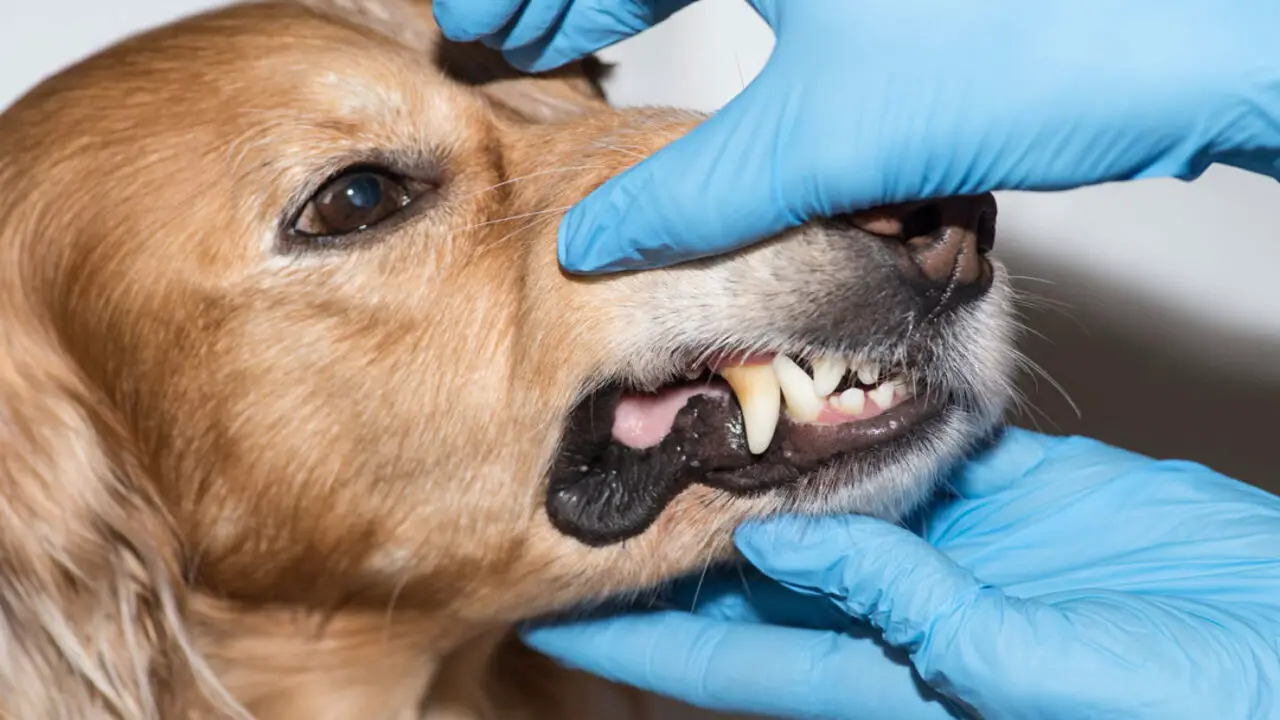
The behaviour change you may observe in your dog after teeth cleaning can be attributed to several factors. One possible reason is the anaesthesia or sedation used during the procedure, which can temporarily affect their behaviour. Discomfort or pain experienced during the dental procedure can also cause strange behaviour in dogs.
Medications administered before or after teeth cleaning can also affect their behaviour. The unfamiliar environment and experience at the vet’s office may induce stress or anxiety in dogs, leading to unusual behaviour. It’s important to remember that the effects of anaesthesia can also contribute to your dog acting strange post-teeth cleaning.
Possible Causes For A Dog Acting Strange After Teeth Cleaning
After a dental cleaning, it is not uncommon for dogs to exhibit some unusual behaviour or symptoms. There are several possible causes for a dog acting strange after teeth cleaning. It is important to remember that every dog is different, and their reactions can vary. Some possible reasons for a dog acting strange after a teeth cleaning include the following:
- Anaesthesia: If your dog was put under anaesthesia during the teeth cleaning, it is not uncommon for them to fdizzyoggy or disoriented afterwards. This should subside as the effects of the anaesthesia wear off.
- Pain Or Discomfort: Dental procedures can cause pain or discomfort, especially if extractions are performed. Your dog may be acting strange due to this discomfort, and it is important to monitor their behaviour and consult with your veterinarian if you have any concerns.
- Change In Routine: Dogs are creatures of habit, and any disruption to their routine can cause them to act out of character. The teeth cleaning process may have been stressful for your dog, leading to changes in behaviour.
- Medications: Your veterinarian may have prescribed pain medications or antibiotics following the teeth cleaning procedure. These medications can sometimes cause side effects such as drowsiness or digestive upset, which could explain your dog’s strange behaviour.
If your dog’s unusual behaviour persists or worsens after teeth cleaning, it is always best to consult your veterinarian for further evaluation and guidance. They can assess your dog’s specific situation and provide appropriate recommendations for their care.
Discomfort Or Pain From The Dental Procedure
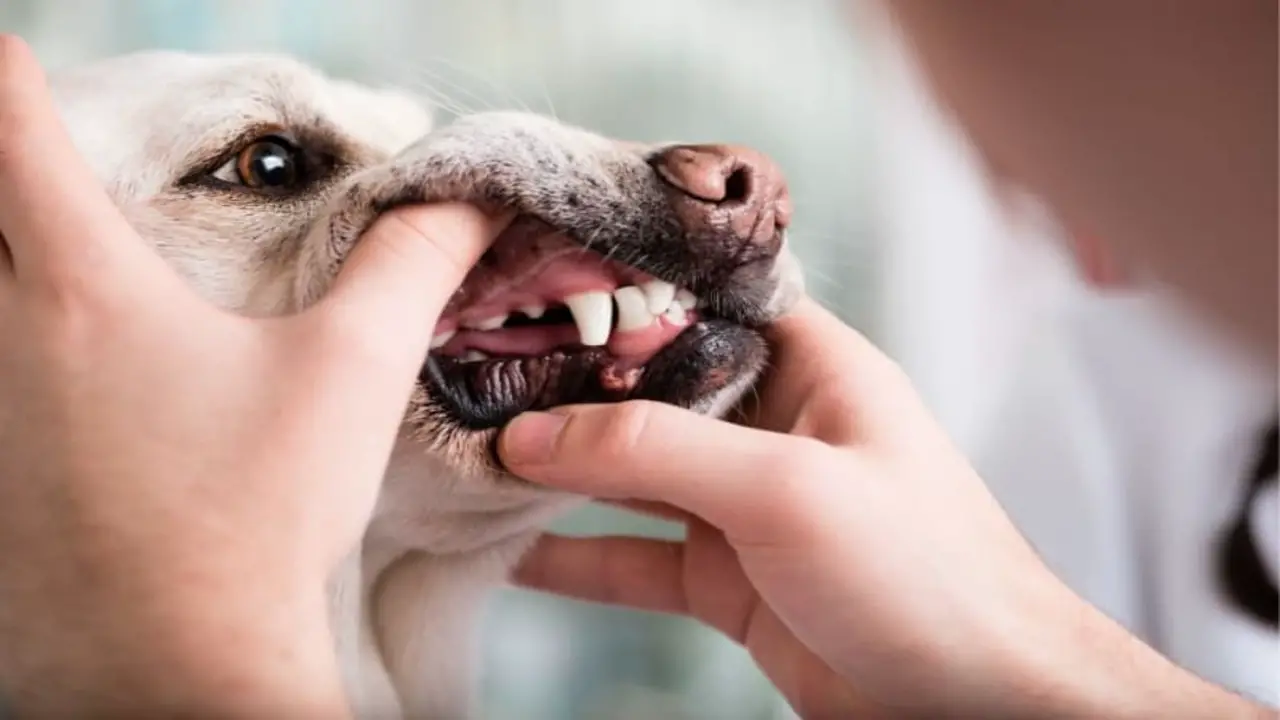
During a dental procedure, dogs may experience discomfort or pain in their mouth, leading to strange behaviour. This could be due to sore gums or inflammation resulting from the procedure. Dogs may exhibit discomfort, such as avoiding food or chewing on one side of their mouth.
Additionally, tooth extraction can cause soreness, contributing to unusual behaviour. Inflammation or infection in the mouth can also trigger strange behaviour in dogs after teeth cleaning. Pet owners must recognize these signs and consult their veterinarian for appropriate care and treatment.
Changes In Behaviour Due To Medication
Suppose your dog is acting strange after getting its teeth cleaned. In that case, paying attention to its behaviour and identifying any specific issues it may be experiencing is important. It is not uncommon for dogs to exhibit some changes in behaviour after a teeth cleaning procedure, particularly if they were administered medication. Some possible changes you may notice include the following:
- Lethargy: Your dog may appear more tired or less active than usual. This is often due to the sedative effects of the medications used during the procedure.
- Disorientation: Your dog may seem confused or disoriented, especially if they were given anaesthesia during the teeth cleaning.
- Changes In Appetite: It is common for dogs to have a decreased appetite or refuse food altogether following a dental procedure. This can be due to discomfort or sensitivity in their mouth.
- Increased Thirst And Urination: Certain medications used during teeth cleaning can cause increased thirst and urination in dogs.
- Soreness Or Pain: Your dog may experience some discomfort or soreness in their mouth after a dental cleaning, which can lead to changes in behaviour such as whining or reluctance to eat.
If you are concerned about any unusual behaviours your dog exhibits after teeth cleaning, it is always best to consult your veterinarian for guidance and reassurance. They can provide specific advice based on your dog’s situation and help alleviate any concerns you may have.
Stress Or Anxiety From The Unfamiliar Environment And Experience
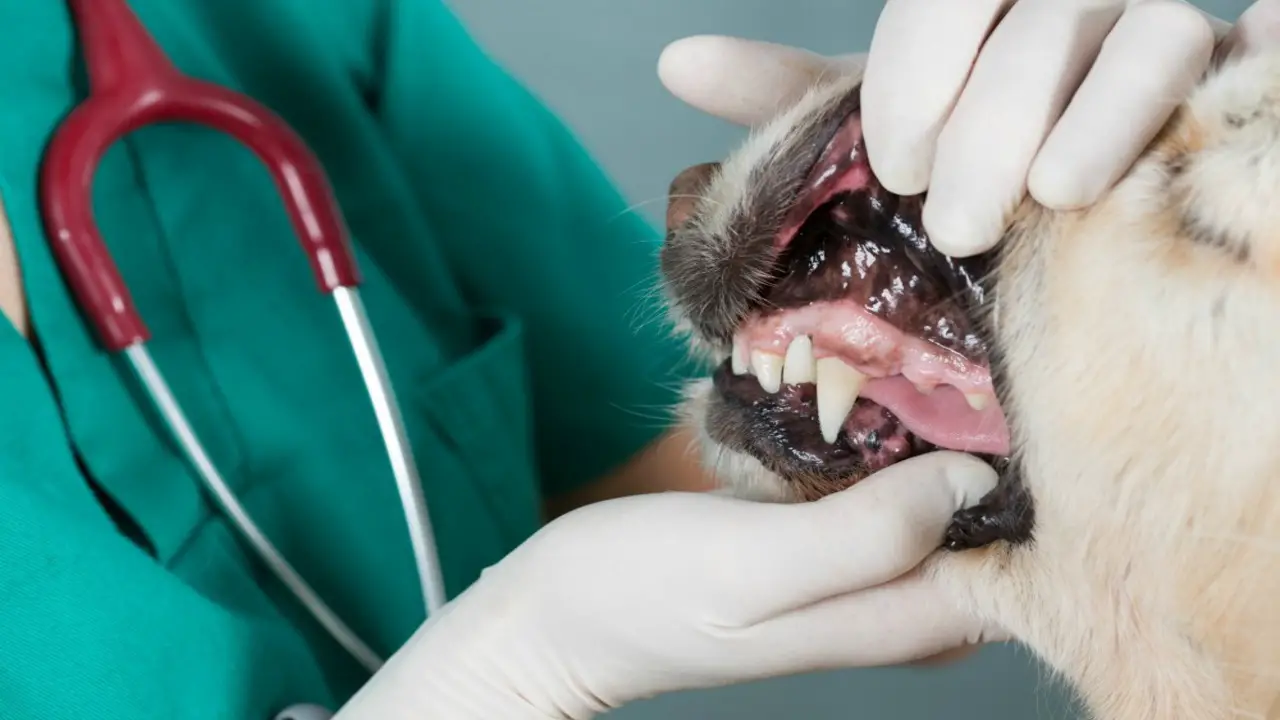
When dogs undergo teeth cleaning, they may exhibit strabehaviourvior due to stress or anxiety caused by the unfamiliar environment. The veterinary clinic or dental office can be overwhelming for them, leading to changes in thbehaviourvior.
Dogs may feel anxious or fearful during the procedure, which can contribute to their unusual behaviour. The dental environment’s unfamiliar sights, sounds, and smells can also cause stress in dogs. Overall, the experience of teeth cleaning can be stressful for dogs, resulting in stranbehaviourior.
How To Monitor And Care For Your Dog Post Teeth Cleaning.
After your dog has had teeth cleaning, it’s important to monitor the behaviour or for any signs of discomfort or strabehaviourvior. Pay attention to their eating and drinking habits to ensure they are recovering well. If your dog experiences soreness in its mouth, providing soft food or treats can help.
Follow your veterinarian’s instructions for post-teeth cleaning care and any prescribed medicatiGivinggive your dog time to rest and recover in a quiet and comfortable environment is also a good endearment. Remember, proper monitoring and care are crucial in ensuring your dog’s health and quality of life post-teeth cleaning.
When To Seek Veterinary Advice If The Stranbehaviourior Persists
If your dog’s stranbehaviourior continues for more than 24 hours after teeth cleaning, it is important to consult your vA veterinarian should address persistent signs of stress, discomfort, or changes behaviouriorrian.
If your dog is exhibiting severe pain, vomiting, diarrhoeahea after teeth cleaning, it is essential to seek veterinary advice. Any signs of infection, such as swollen gums or bad breath, should be evaluated by a vet. Trust your instincts and seek veterinary advice if you are concerned about your dobehaviourvior after teeth cleaning.
Tips For Helping Your Dog Recover And Feel Comfortable Again
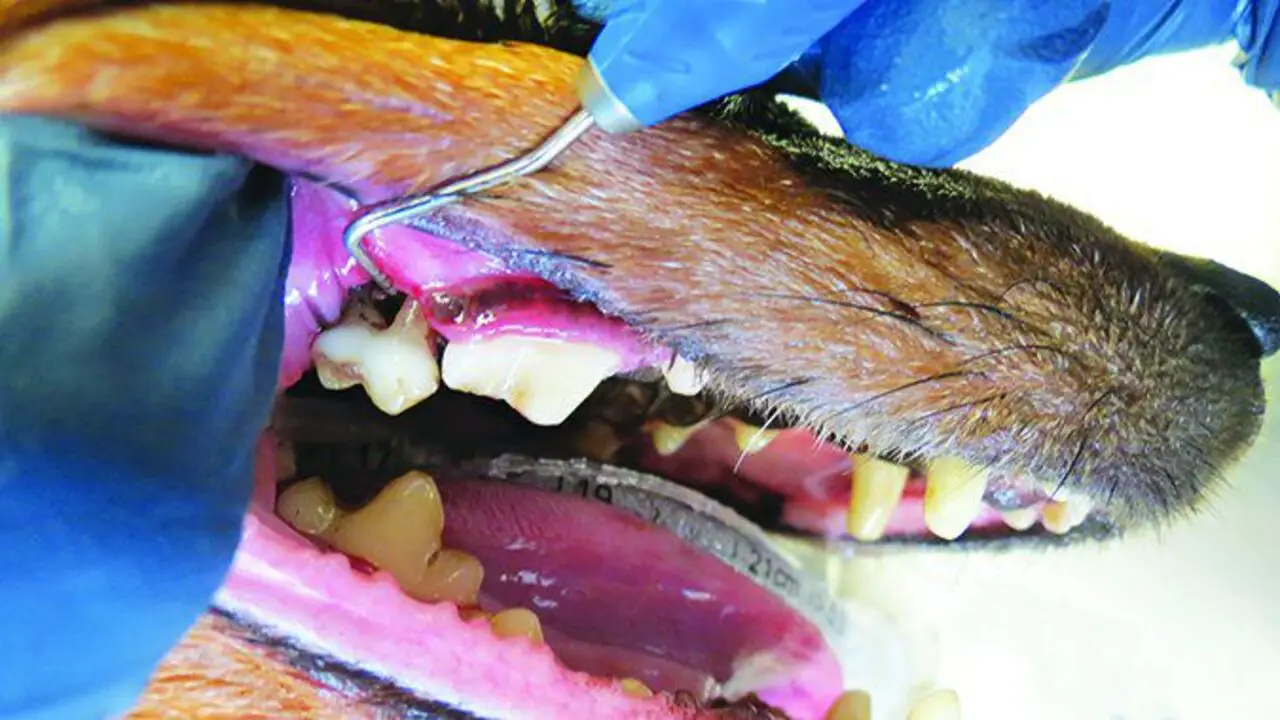
If your dog has been acting strange afteetheeth cleaning, it is important to monitor their behaviour and contact your veterinarian if any concerning symptoms persist. If your dog is acting strange after teeth cleaning, monitoring their behaviour and taking steps to help them recover and feel better is important. Here are some tips to aid in your dog’s recovery:
- Give Them Time And Space: After the procedure, your dog mfeeldizzyoggy or disoriented. Allow them to rest in a quiet area where they can recover without disturbances.
- Provide Soft Food: Chewing may be uncomfortable for your dog, so offer soft or wet food that is easy for a teat.
- Monitor Their Pain Levels: If you notice signs of discomfort or if they seem to be in contact with your veterinarian for guidance on appropriate pain management options.
- Offer Gentle Play And Exercise: Your dog needs to restest; light play and short walks can help stimulate blood flow and aid in their recovery process.
- Maintain Oral Hygiene: To prevent future dental issues, continue brushing your dog’s teeth regularly and schedule regular check-ups with your veterinarian.
Remember, every dog is unique, so if you have concerns about your dog’s behaviour or recovery process, don’t hesitate to contact your veterinarian for guidance.
Precautions To Take Before And After Teeth Cleaning To Minimize Potential Issues
Before scheduling teeth cleaning for your dog, discussing any concerns or pre-existing conditions with your veterinarian is important. Following your vet’s instructions on fasting your dog before the dental procedure is crucial. After the teeth are, clean you must communicate any changesbehaviourvior or concerns to your vet.
Regular bras, dental check-ups, and dental treats or tpromotingmote oral health can significantly contribute to your dog’s dental hygiene. Taking these precautions can minimize potential issues and ensure your dog’s dental health and overall well-being.
Conclusion
It is not uncommon for dogs to exhibit stranbehaviourior after teeth cleaning. This can be attributed to various factors, including side effects, anaesthesiasia or sedation, discomfort or pain from the dental procedure, changesbehaviourvior due to medication, and stress or anxiety from the unfamiliar environment and experience.
Monitoring your dog closely and providing the necessary care and support durirecoveryiod is important. If the strange behaviour persists or worsens, it is advisable to seek veterinary advice. In the meantime, you can help your dog feel comfortable by providing a calm and familiar environment, offering soft foods, and giving them plenty of rest and reassurance.
Taking precautions before and dog acting strange after teeth cleaning can also minimize potential issues. We have provided bulk information on Wdogsdacting strangely after teeth cleaning and hope our information was helpful from your perspective.
Frequently Asked Questions
1.What Should I Watch After The Dog’s Dental Cleaning?
Ans: After your dog’s dental cleaning, monitoring their behaviour closely is important. Look for signs of discomfort or pain, such as difficulty eating or drinking. Keep an eye out for bleeding or discharge in the mouth. Don’t hesitate to contact your veterinarian if you notice any concerning changes.
2.How Do Dogs Act After Teeth Cleaning?
Ans: After teeth cleaning, dogs may exhibit grogginess or disorientation due anaesthesiasia. Some may experience mouth pain and exhibit changes in behaviour, such as refusing to eat or driMonitoringitor your dogbehaviourior post-cleaning and reporting port any concerns to the is the important vet.
3.Can Dogs Get Sick After A Teeth Cleaning?
Ans: It is not uncommon for dogs to experience sickness after a teeth cleaning procedure. They may exhibit symptoms such as nausea, vomiting, and diarrhoea due anaesthesiasia or the cleaning process. If you notice any signs of illness in your dog aftteetheth the cleaning, it is important to contact your veterinarian immediately. Proper post-operative care can help prevent complications and ensure a speedy recovery for your furry friend.
4.How Long Does It Take For A Dog To Return To Normal After Teeth Cleaning?
Ans: The recovery time for dogs after teeth cleaning can vary. Some dogs may return to normal behaviour within a few hours, while others may take a day or two. Watch for signs of discomfort and follow post-operative care instructions provided by your veterinarian for a smooth recovery.
5.How To Care For A Dog After Teeth Cleaning Procedure?
Ans: After your dog’s teeth cleaning procedure, follow the post-procedure instructions from your veterinarian. Offer soft, wet food for a few days to ease any discomfort. Administer prescribed pain medication as directed. Regular dental check-ups and cleanings will help maintain your dog’s oral hygiene.
Meet Elyse Colburn, the devoted canine companion and storyteller behind the enchanting world of “Tales, Tails, and Adventures Unleashed.” A passionate dog enthusiast with a heart full of paw prints, Elyse Colburn shares heartwarming tales and insightful adventures, celebrating the joy, loyalty, and endless antics that make every dog a true hero. Join Elyse Colburn on this tail-wagging journey, where every post is a love letter to our four-legged friends.

